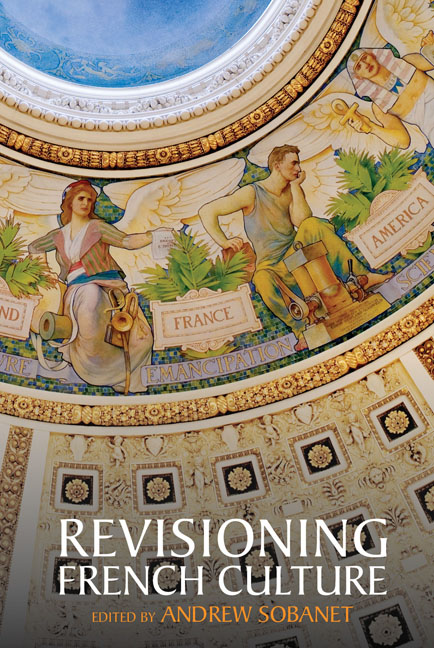Book contents
- Frontmatter
- Contents
- Introduction
- I France in Perspective: The Hexagon, Francophonie, Europe
- II Visions of the World Wars, or L’Histoire avec sa grande hache
- III Refractions and Reflections
- IV French Literature, Revisioned
- V The Subject in Focus
- VI Philosophical Lenses
- VII Coda
- Contributors
- Acknowledgments
- Index
13 - What's in a Word? Language, Philosophy, and Satire in Troubadour Poetry
- Frontmatter
- Contents
- Introduction
- I France in Perspective: The Hexagon, Francophonie, Europe
- II Visions of the World Wars, or L’Histoire avec sa grande hache
- III Refractions and Reflections
- IV French Literature, Revisioned
- V The Subject in Focus
- VI Philosophical Lenses
- VII Coda
- Contributors
- Acknowledgments
- Index
Summary
I am not sure about poetry in general, but in the case of medieval lyric, there seems to be a sense that songs can have meaning without necessarily conveying knowledge. At least not serious knowledge of the kind we associate with philosophy. ‘How can poetry have knowledge?’ asked a colleague with frustration recently. ‘What is that supposed to mean?’ The question surprised me because I had always assumed that one of the fascinating things about medieval lyric is the insight it provides into how people thought and what they knew—both things I associate with philosophical knowledge.
On reflection, I recognized that my colleague did not mean that lyric poetry could not convey knowledge in principle, but that its purpose lay elsewhere: to portray emotions, describe beauty, offer images of ineffable moments, capture the inner essence of a beloved, sound the depths of joy or despair, or simply reflect upon something that has struck the poet's imagination. Such revelations show the poet’s inner consciousness and they strike that spark of recognition that jumps the gap between the poet's perception and the reader’s. This meeting of mind and affect has gone by diverse names: ‘the sublime,’ ‘sincerity,’ even ‘truth.’ But by no stretch of the imagination could any of this be confused with argument, logic, syllogism, or other kinds of philosophical discourse.
Fair enough, lyric poetry does not ‘do’ philosophy. But it does ‘do’ language in rather spectacular ways. And as both creator and creation of language, lyric shares with philosophy a need to find ways of transferring what one knows, sees, and experiences of life—the shock of the other, as it were—into a language appropriate to its poetics. Or, as Stanley Cavell has taught us, transferring knowledge is not simply transposing ‘facts,’ but also the enigma of facts, the uncertainty of knowing.
The problem lies not with the existence of a thing, but with knowing, with any degree of certainty, whether or not we have the same definition or criteria of a given object as an interlocutor, or, in the case of a historically remote text, as a writer might have had. Do we, in short, share the same or nearly the same concept of the thing?
- Type
- Chapter
- Information
- Revisioning French Culture , pp. 187 - 212Publisher: Liverpool University PressPrint publication year: 2019

